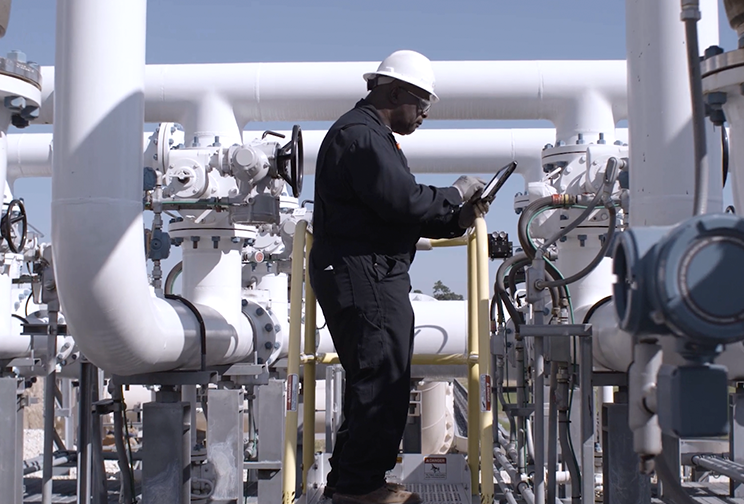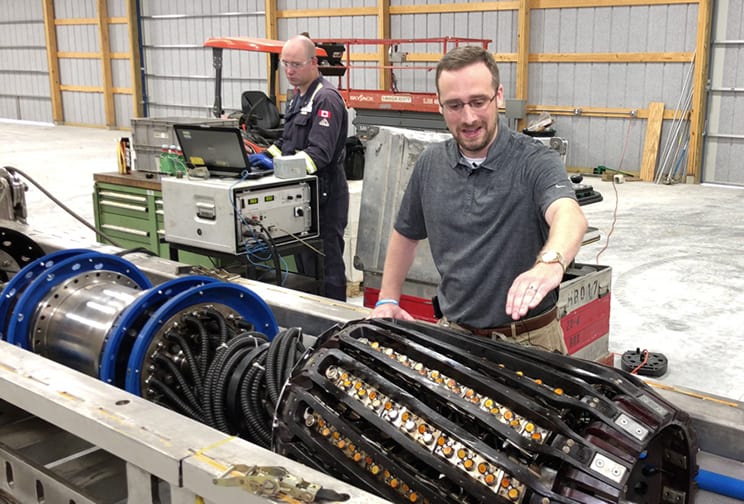CO2 pipelines transport captured emissions from ethanol plants to permanent underground storage.
- This helps ethanol and corn producers in Iowa, South Dakota, Nebraska, Minnesota and Illinois open new markets with lower carbon ethanol, supporting jobs and the environment.
CO2 is transported as a liquid through the safest pipelines in the country.
CO2 Pipelines Help Farmers Add Value to Every Bushel
By transporting carbon dioxide captured from Midwestern ethanol plants, CO2 pipelines help increase demand for corn, adding value to every bushel produced.
CO2 Pipelines are Good Partners
CO2 pipeline projects are designed to keep the land productive. Underground pipeline projects restore the land to its intended use and are permanently out of sight.
CO2 Pipelines Open New Markets for Midwestern Products
CO2 pipelines provide a pathway for locally produced ethanol to be sold into new markets, boosting corn production, local jobs and economic growth.
CO2 Pipelines Pay Landowners
Landowners of all types receive income from pipelines under their property. The whole community benefits from the local CO2 pipeline.
The national focus on lowering carbon emissions brings a new opportunity for Midwestern corn and ethanol producers.
Capturing CO2 emissions from ethanol production will lower its carbon content and prevent those emissions from reaching the atmosphere. Pipelines are needed to transport the captured carbon to permanent storage over a mile underground.
CO2 Pipelines Keep Midwestern Agriculture Vibrant
Benefits for Communities in Iowa, South Dakota, Nebraska, Minnesota and Illinois
CO2 pipelines help corn growers and ethanol producers take advantage of the energy transition.
- New markets for Midwestern ethanol will come open from the lower-carbon ethanol made possible by CO2 pipeline partnerships.
Fertilizer production and manufacturing in the Midwest will also benefit from CO2 pipelines reducing their carbon emissions.
Landowners will receive payments for their easements, even as those lands are returned to income-producing farmland.
Operating the CO2 pipeline network will create permanent jobs across the Midwest.

- Paid in full prior to start of construction.
- 5-yr yield loss compensation paid even if actual yield loss is less or ends sooner.
- Based on identified crop types and percentage of land used for crops.
- Accounts for CSR2 values for tillable acres and soil quality and productivity.
- Reflects current and historical crop yields.
- Benefits from work with each landowner and tenant, to address unique farming and ranching operations.
- Direct landowner discussions locate and identify drain tiles and systems.
- Construction design routes CO2 pipelines at least 1’ below drain tiles.
- Third-party agricultural and county monitors oversee construction to ensure compliance with management plans.
- Flexibility to use local contractors or compensate landowners if they prefer to restore tile system to previous condition.
- Specialized restoration companies retained to develop and execute construction mitigation and restoration plans.
- Construction impacts are temporary and lands are returned to pre-construction conditions or better.
- Accounts for the unique conditions of regional landscapes and land use practices.
- Soils are segregated, protected and decompacted upon replacement.
Information on how pipelines work, how they are constructed and what pipeline operators do to keep them safe.
Pipelines deliver the benefits of affordable energy, helping us get where we need to go and making life more convenient.
Proactive inspections, preventive maintenance, and 24/7 monitoring all keep pipelines and surrounding areas safe.



